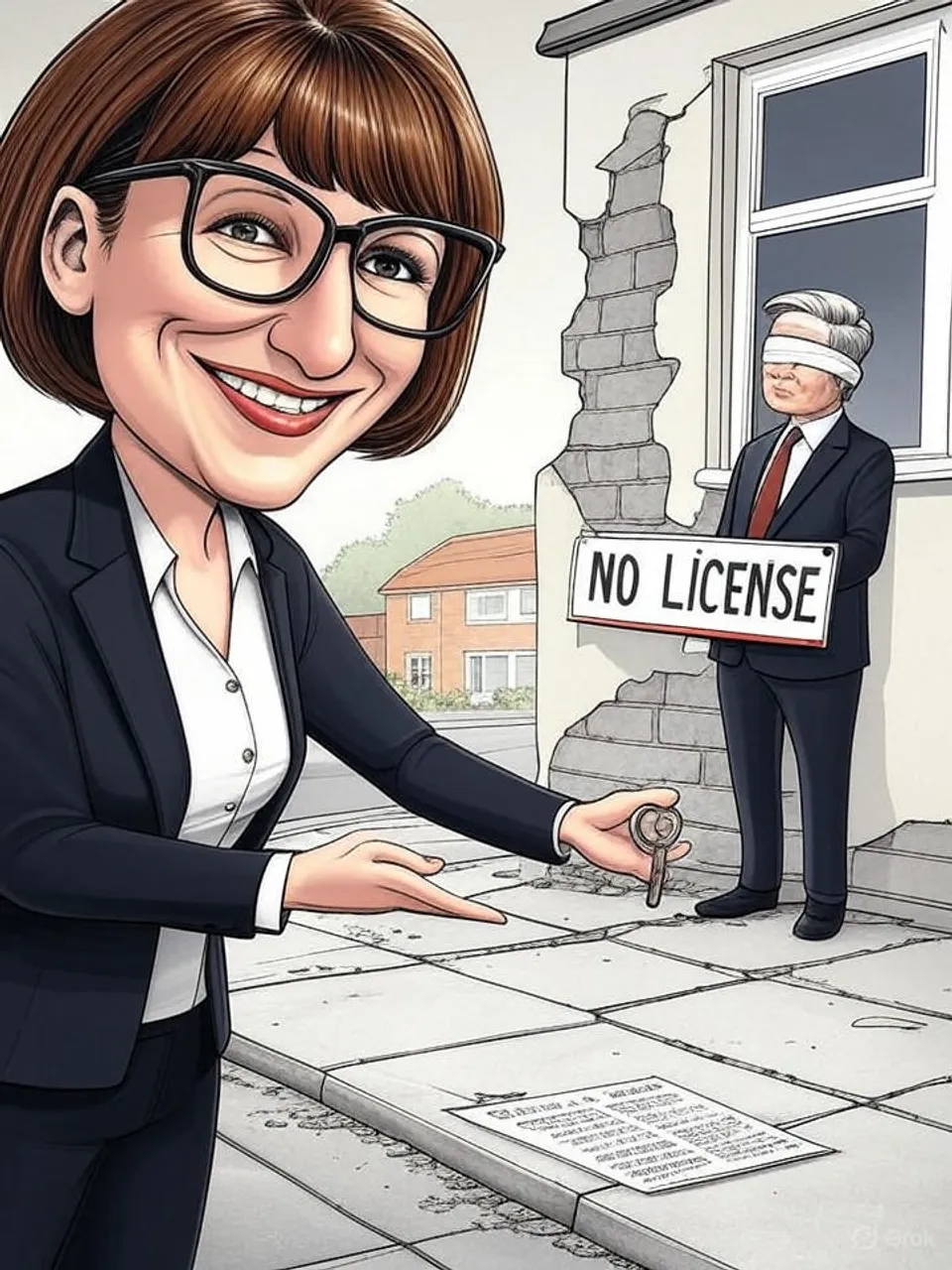Reeves Rents Without License, Echoing Ministerial Code Evasions

Chancellor's lapse in Southwark highlights selective enforcement of housing rules she champions
Rachel Reeves' unlicensed rental of her London home avoids investigation despite potential criminal breach, revealing systemic gaps in ministerial accountability that undermine public trust and policy credibility.
Rachel Reeves, the Chancellor of the Exchequer, rented her Southwark home for £3,200 monthly without obtaining the required selective rental license. Southwark Council mandates this license to enforce housing standards, combat crime, and manage demand in designated areas. Reeves only applied for it after a Daily Mail inquiry alerted her in October 2025, nearly 15 months after listing the property in July 2024.
The selective licensing scheme costs landlords £945 and carries penalties up to unlimited fines for non-compliance. Councils prosecute cases where properties lack licenses, as seen in Southwark’s 2024 fines of £1,128 against a landlord and £2,256 against a letting agent, both notified in advance. Reeves claimed ignorance, blaming her letting agent for not advising her, despite her public endorsement of such schemes just weeks earlier.
In a letter to Prime Minister Keir Starmer, Reeves described the omission as an “inadvertent error” and apologized. Starmer consulted independent ethics adviser Sir Laurie Magnus, who deemed no formal investigation necessary due to her swift application and apology. This decision closed the matter without verifying evidence beyond Reeves’ account, as Downing Street refused to disclose details of Magnus’ review process.
The Ministerial Code states that apologies can resolve breaches in certain cases, following adviser consultation. Yet Magnus’ prior rulings led to the resignations of two Labour ministers in 2024 for lesser infractions: one for undeclared gifts, another for lobbying conflicts. Reeves faces no such consequence, even as potential council fines loom, which could classify the act as a criminal offense if her agent’s assurance proves insufficient excuse.
Reeves’ support for selective licensing extends to her Leeds constituency, where she praised the council’s expansion of the scheme on October 17, 2025. This policy aims to protect tenants and raise standards in high-demand areas, aligning with Labour’s 2024 manifesto commitments on housing security. Her personal lapse undermines that stance, highlighting a disconnect between policy advocacy and personal adherence.
Public reaction underscores the irony. Tenant union Acorn labeled it “laughable” for a leader to champion rules she failed to follow. Conservative leader Kemi Badenoch demanded an investigation, citing Starmer’s past rhetoric that “law breakers shouldn’t be lawmakers.” Scotland’s First Minister John Swinney called it “extraordinary carelessness,” pointing to repeated Labour ethics shortfalls since July 2024.
This incident fits a pattern of ethics oversights across administrations. Under the Conservatives, former Prime Minister Boris Johnson faced 126 alleged Ministerial Code breaches in 2022, with adviser Christopher Grayling investigating only a fraction. Labour’s early tenure saw three ministerial resignations by September 2024, yet Reeves’ case evades scrutiny, suggesting selective enforcement.
Accountability mechanisms reveal their limits here. The independent adviser operates at the Prime Minister’s discretion, lacking subpoena powers or public reporting mandates. Questions about evidence access—whether Magnus reviewed letting agent communications or rental records—remain unanswered, eroding transparency in a system meant to uphold “the highest standards.”
Housing policy suffers from such inconsistencies. The UK private rental sector houses 4.6 million households, per 2023 government data, with licensing schemes covering just 20% of high-risk areas despite evidence they reduce antisocial behavior by 15-20%, according to a 2022 Ministry of Housing review. When ministers bypass rules, it signals to landlords that compliance is optional, weakening enforcement against substandard properties.
Broader institutional trust declines as a result. Polling by Ipsos in September 2025 showed only 28% of Britons trust politicians to act ethically, down from 42% in 2010. Repeated closures of ethics inquiries without independent probes reinforce perceptions of a protected class, where high office shields from consequences ordinary citizens face.
The Reeves episode exposes how power insulates leaders from the regulations they impose. Southwark’s enforcement reserves fines for non-applicants after warnings, a threshold Reeves met only under media pressure. This reactive compliance, not proactive duty, defines modern governance.
Such lapses persist because incentives favor evasion over rigor. Ministers cycle through roles with minimal repercussions; post-tenure, many join consultancies or boards, per 2024 Transparency International data showing 70% of ex-ministers in such positions within two years. The system rewards oversight, not accountability.
Ordinary renters bear the cost. In Southwark, unlicensed properties contribute to 12% higher rates of disrepair, based on 2024 council reports. When the Chancellor models non-compliance, it perpetuates a market where tenants endure poor conditions while landlords profit unchecked.
Britain’s ethical framework, once a post-Watergate bulwark of public standards, now functions as theater. The Ministerial Code, updated in 2022, promises rigor but delivers leniency to allies. Reeves retains her post amid Budget preparations, her “mistake” dismissed as resolved.
This rental oversight crystallizes the UK’s governance decay: rules apply to the governed, not the governors. Across parties, from Johnson’s parties to Starmer’s inner circle, accountability erodes, leaving citizens with leaders who demand standards they evade. The decline lies not in isolated errors, but in their normalization, ensuring dysfunction endures.
Commentary based on Starmer rules out investigation after Reeves admits rental 'mistake' at BBC News.